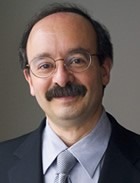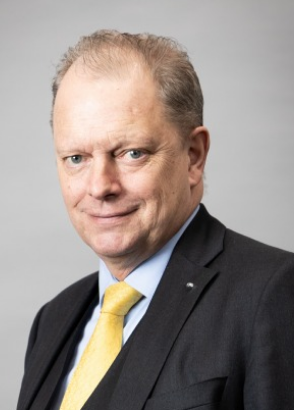
The key to achieving net zero emissions by 2050 is to realize an energy system that maximizes the use of renewable energy, along with accelerating energy efficiency.
On the occasion of Amory B. Lovins's visit to Japan after five years, a pioneering advocate of this vision, Renewable Energy Institute took the opportunity to host a special seminar. Amory has served as an advisor to the U.S. Department of Energy and Defense, and has advised government agencies and corporations in more than 70 countries on advanced energy and resource efficiency, strategies, and energy security.
Tomas Kåberger, Chair of Executive Board of Renewable Energy Institute, also spoke on "Energy Systems that Enable 100% Renewable Electricity Possible" based on latest research and practices in Europe.
In order to achieve the 1.5°C target, G7 countries are urgently required to decarbonize their electricity sectors by 2035.
The event provided an opportunity to discuss Japan's future energy policy.
Program * English-Japanese interpretation provided.
[MC/Moderator]Kae Takase Senior Coordinator, Renewable Energy Institute
|
Presentation 1: Designing Harmony Between Variable Power Sources, Demand Management, and Energy Storage |
Speakers Profile
-

- Amory B. Lovins
Cofounder and Chairman Emeritus, Rocky Mountain Institute / Adjunct Professor of Civil and Environmental Engineering, and Scholar, Precourt Institute for Energy, Stanford University - For nearly five decades, Amory B. Lovins has been advising firms and governments about the nexus of energy, resources, environment, development, and security in more than 70 countries including the U.S. Departments of Energy and Defense. He is widely considered among the world’s leading authorities on energy—especially its efficient use and sustainable supply—and a fertile innovator in integrative design. He has published more than 30 books and 700 papers, and won numerous awards including the Right Livelihood Award (the “Alternative Nobel”) , the Onassis Foundation’s first Delphi Prize (one of the world’s top environmental awards), the Nissan Prize, the Blue Planet Prize, and the Shingo Prize (Nobel –like prize in Manufacturing). In 2009, Time named him one of the 100 most influential people in the world, and Foreign Policy one of the 100 top global thinkers. He is a former Oxford don, an honorary US architect, and a Swedish engineering academician, and has received twelve honorary doctorates. His 31st book with a large RMI team, Reinventing Fire (2011, also in Japanese), roadmaps how to eliminate U.S. oil, coal, and nuclear power by 2050 and save $5 trillion, led by business for profit.
In 2013–16 he co-led a similarly rigorous and surprising roadmapping of China’s energy transformation for the National Development and Reform Commission, helping to inform the 13th Five Year Plan. He then helped the Government of India launch the transformation to shared, connected, and electric mobility. In 2016, the President of Germany awarded him that nation’s highest civilian honor for helping inspire and guide its energy transition.
Since 2020 he has been teaching half-time at Stanford on energy and integrative design—a way to make the energy efficiency resource severalfold larger, yet cheaper, by optimizing buildings, factories, and vehicles as whole systems.
- Amory B. Lovins
-

- Tomas Kåberger
Chair of Executive Board, Renewable Energy Institute / Professor, Chalmers University of Technology
Tomas Kåberger has been the Chair of Executive Board of Renewable Energy Institute since its foundation in 2011. Academically, he got an MSc in Engineering Physics, a PhD in Physical Resource Theory, and Docent in Environmental Science at Chalmers. He has been professor in International Sustainable Energy Systems at the International Institute for Industrial Environmental Economics at Lund University, and he is currently affiliate Professor of Industrial Energy Policy at Chalmers University of Technology.
Industrially, he has had leading roles in companies providing fuels and technology in the bio-energy industry, another company developing sustainable energy solutions for the automotive industry, and a company operating wind power plants. Currently he serves on the board of Persson Invest, a company building wind and solar plants and a retailer of cars, trucks and busses; increasingly electric. He is also the Chairman of the Swedish Delegation for a Circular Economy.
He has served as Director General of the National Swedish Energy Agency, Board of Director of the power company Vattenfall, and as member of the Swedish Climate Policy Council.
Other key positions he has held include board of the Swedish and European environmental citizens organizations, government committees and commissions on energy and environmental policy in Sweden, as well as member task forces under China International Council for Cooperation on Environment and Development.
He is a member of the Royal Swedish Academy of Engineering Sciences and the Swedish Society of Energy Economists.
- Tomas Kåberger
Event Details
| Date / Time | Thursday 31 August 2023 / 14:00-16:00 JST |
|---|---|
| Venue | Iino Hall & Conference Center |
| Organizer | Renewable Energy Institute |
| Admission | Free (Pre-registration required) |






